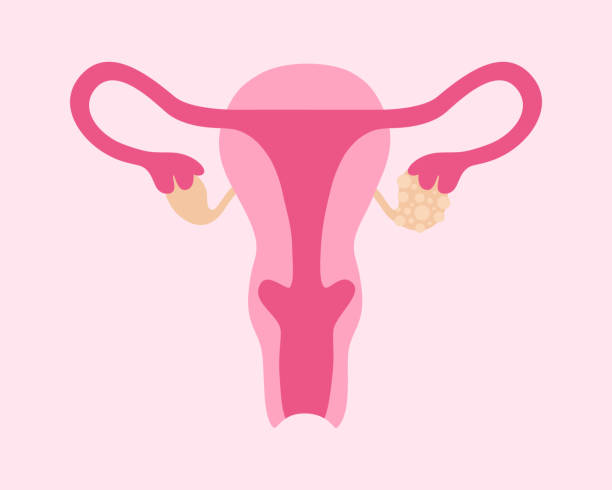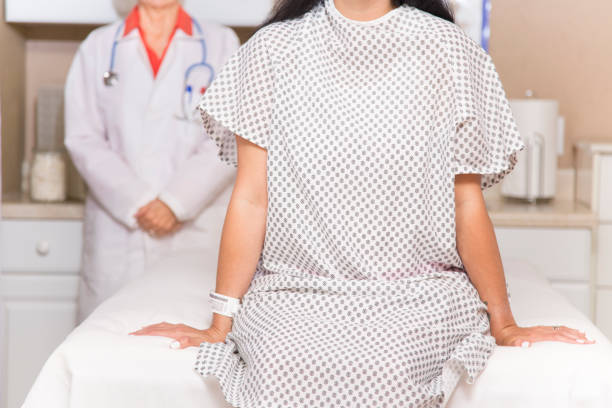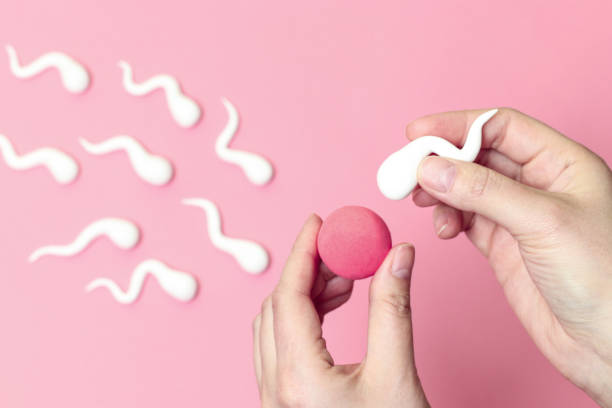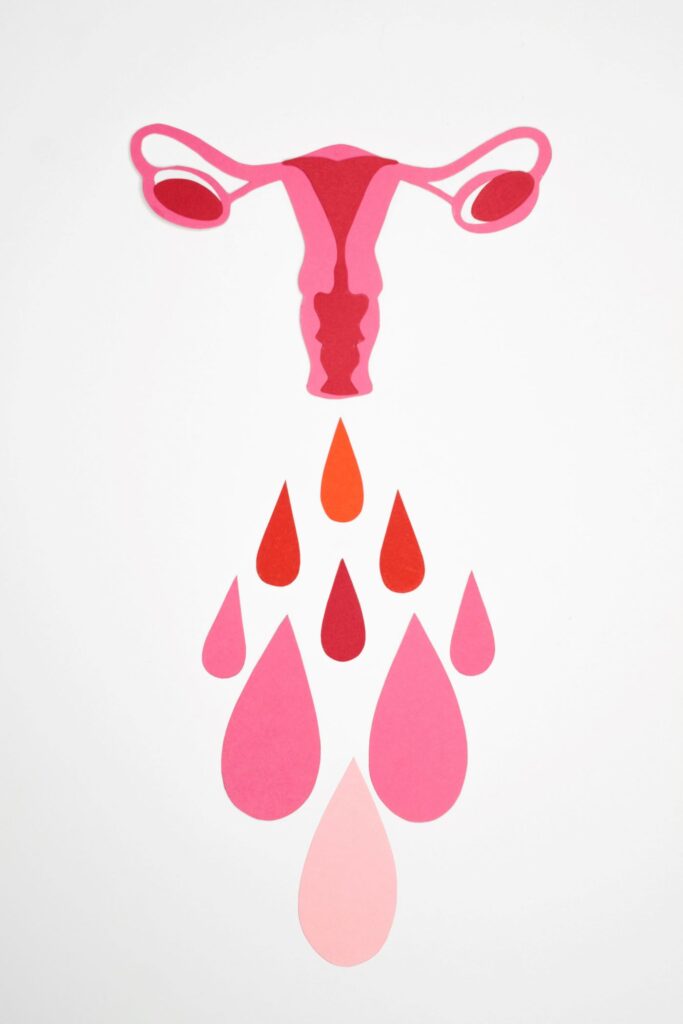Reproductive Health
Unlocking the Secrets: Taking Care of Your Female Reproductive System
The female reproductive system is a sophisticated and intricate network of organs that contributes significantly to a woman’s general health and well-being. The reproductive system of a woman varies dynamically throughout her life, from menstruation and fertility to pregnancy and menopause. Taking proactive actions to care for this vital system is critical for sustaining reproductive health, hormone balance, and overall well-being. In this article, we will look at the numerous facets of caring for the female reproductive system, including preventive measures, lifestyle choices, and healthcare practices that can promote good reproductive health. Whether you’re dealing with menstruation irregularities, planning a pregnancy, or looking for ways to maintain hormonal balance, join us as we discuss the value of self-care and proactive management in supporting the female reproductive system at all phases of life.

Understanding the Female Reproductive System
The female reproductive system is a complex system that is crucial to a woman’s overall health. It consists of both internal and external structures, hormones, and processes that collaborate to generate and transport eggs, assist fertilization, and promote pregnancy.
Anatomy and Function
The female reproductive system consists of the uterus, vagina, ovaries, vulva, cervix, fallopian tubes, clitoris, and labia. Each of these components serves a distinct purpose in the reproduction process.
The uterus is a muscular organ that carries a fertilized egg and supports the growing embryo throughout pregnancy. The vagina is a muscular tube that links the uterus to the rest of the body and is used for sexual intercourse and birthing. The ovaries make and release eggs, as well as hormones like estrogen and progesterone. The vulva, cervix, fallopian tubes, clitoris, and labia all participate in sexual desire, reproduction, and birthing.
Hormonal Regulation
The female reproductive system is controlled by a complicated interplay of hormones that includes estrogen and progesterone. The ovaries generate these hormones, which play an important role in regulating the menstrual cycle, ovulation, and pregnancy.
Estrogen is responsible for the formation and maintenance of female reproductive tissues, as well as the management of the menstrual cycle. Progesterone prepares the uterus for pregnancy and ensures a healthy pregnancy if it occurs.
Menstrual Cycle and Ovulation
The menstrual cycle occurs on a monthly basis and prepares the uterus for pregnancy. It includes the shedding of the uterine lining, the release of an egg from the ovaries (ovulation), and the thickening of the uterine lining to prepare for a fertilized egg.
Ovulation is the release of an egg from the ovaries, which occurs around halfway through the menstrual cycle. If the egg is fertilized with sperm, it will implant in the uterine lining and grow into a fetus. If fertilization does not occur, the uterine lining sheds during menstruation.

Maintaining Reproductive Health
Maintaining reproductive health is an important aspect of a woman’s overall health. There are various strategies to keep the reproductive system healthy, including regular gynecological appointments, screening and testing, and infection and disease prevention.
Routine Gynecological Visits
Regular appointments with a gynecologist or doctor are essential for preserving reproductive health. These appointments enable for early diagnosis of any potential abnormalities, as well as the opportunity to discuss any sexual health concerns or inquiries. During these visits, the doctor may conduct a pelvic exam, Pap smear, or breast examination. It is suggested that women begin seeing a gynecologist or doctor for routine checkups around the age of 21, or when they become sexually active.
Screening and Testing
Screening and testing for sexually transmitted diseases (STDs) is another critical part of reproductive health. STDs including chlamydia, gonorrhea, and HIV/AIDS can have major long-term consequences for a woman’s health if not treated. Testing for these disorders is typically done at routine gynecological appointments or at a specialized clinic. It is also critical to consult with a doctor about contraception alternatives to avoid unplanned births and the spread of STDs.
Prevention of Infections and Diseases
Preventing infections and illnesses is critical for preserving reproductive health. One strategy to minimize infections is to maintain good vaginal health, which includes avoiding douching and using condoms during sexual activity. It is also critical to live a healthy lifestyle, which includes eating a well-balanced diet, exercising regularly, and avoiding smoking and excessive alcohol intake. Furthermore, using birth control techniques like condoms and intrauterine devices (IUDs) can help reduce the spread of STDs and unintended pregnancies.
Overall, sustaining reproductive health necessitates a proactive approach and frequent appointments to a gynecologist or doctor. Following these instructions allows women to take charge of their sexual health and avoid potential complications.

Challenges to Female Reproductive Health
The female reproductive system is delicate and complex, requiring special care and attention. Unfortunately, women confront numerous problems in preserving their reproductive health. In this area, we will look at some of the most prevalent reproductive illnesses, infertility, and related difficulties, as well as how lifestyle choices affect women’s reproductive health.
Common Reproductive Disorders
Several reproductive problems can impair women’s reproductive health. Some of the most prevalent conditions are polycystic ovary syndrome, endometriosis, uterine fibroids, and menopause. Polycystic ovarian syndrome is a hormonal condition that primarily affects women of reproductive age. It may cause irregular periods, acne, weight gain, and infertility. Endometriosis is a disorder in which the tissue that borders the uterus develops outside of it, resulting in pain and discomfort. Uterine fibroids are noncancerous growths in the uterus that can cause excessive bleeding and pain. Menopause is a natural process in which a woman’s ovaries stop releasing eggs, causing a drop in hormone levels and the cessation of menstrual periods.
Infertility and Related Issues
Infertility is a widespread reproductive problem that affects many women. It can be caused by a number of causes, including age, hormone imbalances, and specific medical disorders. In addition to infertility, women may face other challenges such as trouble conceiving, miscarriage, and ectopic pregnancy. These concerns can be emotionally and physically demanding for women, affecting their overall reproductive health.
Impact of Lifestyle Choices
Women’s reproductive health can be significantly influenced by their lifestyle choices. Smoking and drinking alcohol can raise the risk of infertility, miscarriage, and other reproductive issues. Sexual activity can have an impact on reproductive health since unprotected sex can result in sexually transmitted illnesses and undesired pregnancies. Making healthy choices, such as eating fruits and omega-3 fatty acids, taking supplements, and utilizing contraception, can all help to maintain reproductive health. However, it is crucial to note that contraceptives can cause negative effects, and women should consult with their healthcare professional to decide the best technique for their specific requirements.
Overall, women encounter numerous problems in preserving their reproductive health. Women may take charge of their reproductive health and live healthy, satisfying lives if they recognize and handle these difficulties.
Conclusion
To summarize, emphasizing care of the female reproductive system is critical for women’s general health and well-being at all stages of life. From adolescence to menopause and beyond, taking proactive actions like as eating a balanced diet, exercising regularly, practicing safe sex, and seeing healthcare specialists on a regular basis can help the reproductive system live a longer and healthier life. Furthermore, encouraging open discussion about reproductive health issues and obtaining prompt medical attention for any anomalies or discomforts are critical components of self-care. By taking a holistic approach to reproductive health, women may empower themselves to make educated decisions and take control of their well-being, ensuring that their reproductive systems thrive and contribute to their overall health and quality of life.
Trusted Health, Wellness, and Medical advice for your well-being


